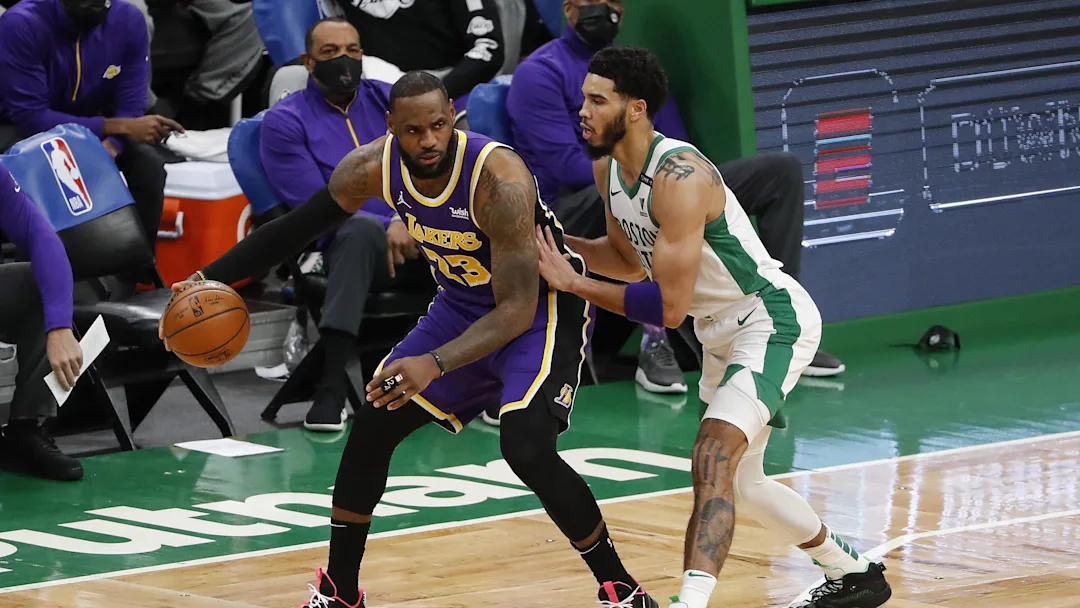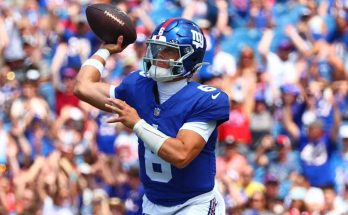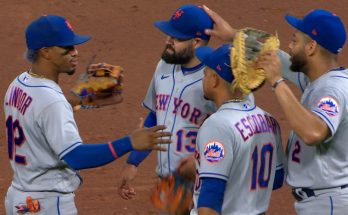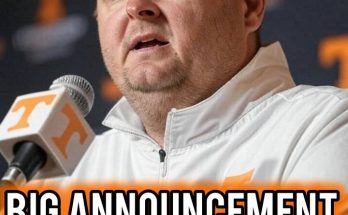LeBron James has always been a towering figure in NBA discourse, not just for his play on the court, but also for his impact off it—through his words, leadership, and evolving relationships with the next generation of stars. One of the brightest among them is Jayson Tatum, the Boston Celtics’ franchise cornerstone, who has had a tumultuous yet impressive journey through the league. In recent months, the interactions—both direct and indirect—between LeBron and Tatum have sparked widespread interest among fans and analysts, particularly as LeBron appears to have responded to Tatum’s comments and the Celtics’ overall trajectory with a mix of praise, critique, and empathy.
During the early part of the 2025 season, Tatum gave an interview in which he expressed admiration for LeBron’s unprecedented longevity and continued dominance. He described it as incredible that someone in their 40s, playing in their 22nd NBA season, could still compete at an All-NBA level. Tatum said LeBron doesn’t get talked about enough, even though he’s one of the most discussed athletes ever. His remarks carried a tone of respect and reflection, acknowledging the kind of consistency and commitment that has kept LeBron at the top of the league across two decades. Tatum spoke about how meaningful it was to compete against him and how he had grown up watching him play. This was not the first time Tatum had shown admiration for LeBron, but it added emotional weight, considering the ongoing rivalry between the Celtics and Lakers, as well as the generational difference between them.
Not long after those comments, LeBron addressed Tatum’s career during an episode of his podcast, speaking in glowing terms about how much the young star had accomplished at such a young age. LeBron emphasized that Tatum had already made multiple trips to the Eastern Conference Finals and had a Finals appearance under his belt before turning 26. He compared Tatum’s early success to his own and to that of other legends like Michael Jordan and Nikola Jokic, pointing out that many of them didn’t win their first title until they were closer to 28. LeBron stressed that the expectations placed on Tatum were enormous, but that the forward had done nothing but produce, grow, and perform in high-pressure situations. His words carried not only recognition but also a sense of mentorship—perhaps even passing the torch to one of the next great faces of the league.
This moment of praise was significant, particularly because it came from someone who understands the immense pressure of being seen as a franchise savior at a young age. LeBron has been there. He has lived under the microscope. To give Tatum that level of respect signaled to many fans that the Celtics’ star had officially arrived not just as a scorer or highlight machine, but as a winner and leader. LeBron also pointed to the Celtics’ roster moves during the offseason as evidence that Boston was serious about making another title run. He highlighted how the team had managed to land Jrue Holiday and Kristaps Porzingis, deepening their already talented roster. In short, LeBron was bullish on Boston and especially optimistic about what Tatum could achieve in the near future.
However, the conversation took a different turn following the Celtics’ elimination from the 2025 NBA Playoffs at the hands of the New York Knicks. The Celtics, despite being one of the top seeds and overwhelming favorites to win the series, failed to deliver in critical moments. They gave up big leads, struggled with execution in late-game situations, and were ultimately knocked out earlier than expected. In another episode of his podcast, LeBron offered what many saw as a subtle critique—not just of the Celtics as a team, but of their two superstars, Jayson Tatum and Jaylen Brown. He commented that it sometimes seemed like the Celtics got bored because of how great they are. He mentioned that Tatum and Brown had already “punched their 10,000 hours,” referencing Malcolm Gladwell’s popular theory about mastery, but suggested that perhaps they weren’t consistently applying that mastery with the urgency or edge necessary in the postseason.
LeBron’s tone was analytical, not malicious. Still, for Celtics fans, the implication stung. The idea that a team could coast or lose focus during playoff basketball was not just frustrating, but worrying. His co-host, Steve Nash, echoed the sentiment, noting that the Celtics lacked detail in their execution and struggled with spacing and adjustments—issues that go beyond talent and into the realm of discipline and coaching. Nash pointed out that Boston’s Game 1 and Game 2 losses to New York were emblematic of these deeper problems. They didn’t make defensive adjustments when Jalen Brunson got hot. They lacked offensive structure when it mattered most. For a team with championship aspirations, those critiques hit hard.
LeBron’s comments, while critical, were not dismissive. They came from a place of understanding, perhaps even disappointment, because of the high standard he holds for players like Tatum. He knows what it’s like to be on a great team and still fall short due to mental lapses or strategic missteps. He’s been there. In many ways, this critique wasn’t just about Boston—it was about the burden of excellence and how easy it is to fall short of that standard without constant, intentional focus.
Then came the emotional turning point. During Game 4 of that Knicks series, Tatum suffered a serious leg injury—widely reported as a torn Achilles. It happened in the fourth quarter, just after he had scored his 42nd point of the night. Tatum fell to the court in pain and immediately grabbed his lower leg. The reaction from the basketball world was swift and emotional. LeBron posted a simple message on social media: praying hands emojis and the nickname “Big Deuce,” Tatum’s moniker. It was a short, heartfelt message, but it carried weight. This wasn’t the critic speaking—it was the fellow competitor, the elder statesman of the league, reaching out in empathy.
Other NBA players joined in sending their well wishes, including Grant Williams, Kendrick Perkins, and Isaiah Thomas. Even Patrick Mahomes and Julian Edelman from the NFL weighed in, a testament to how widely respected Tatum is across sports. For LeBron, this was clearly a moment where competition gave way to compassion. He’s seen this happen before. He knows how devastating a season-ending injury can be, especially for a player who is just entering his prime.
So, across these few months, LeBron’s relationship with Tatum—and his commentary on the Celtics more broadly—has painted a full picture: admiration for Tatum’s growth, concern over Boston’s consistency, and heartfelt empathy when tragedy struck. It’s the kind of nuanced interaction that can only come from someone who has been through the highs and lows of superstardom. For LeBron, this isn’t just about basketball—it’s about legacy, leadership, and the weight of expectations.
Tatum, for his part, has handled everything with grace. He hasn’t responded directly to LeBron’s critiques, nor has he allowed the injury to shift his tone. His previous comments about LeBron still resonate: respect, appreciation, and awe. Even as the Celtics face uncertainty heading into the next season, Tatum’s approach remains professional and focused. The hope among Boston fans is that this injury does not derail his momentum, but rather becomes a moment of growth, both physically and mentally.
Meanwhile, LeBron’s dual message stands: Tatum is already among the elite, but greatness requires relentless attention to detail. Teams can’t afford to get bored. They can’t coast. The message applies to everyone, but it lands especially hard on teams like Boston that have the tools to win it all yet haven’t sealed the deal. In LeBron’s eyes, talent is just the beginning. Sustained greatness demands more.
As we look ahead, LeBron’s words may serve as both a warning and a challenge. For Tatum, they’re also an endorsement of his potential. What remains to be seen is how the Celtics respond. Will they use the loss and injury as fuel for a stronger run next year? Will Tatum return better than ever? One thing is certain: LeBron James is watching—and so is the rest of the league.



